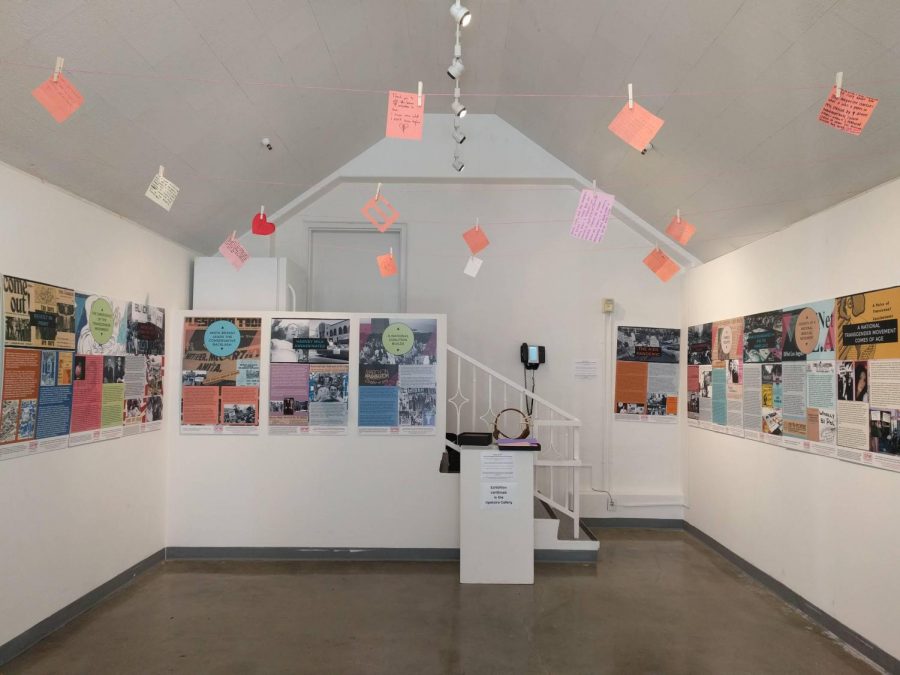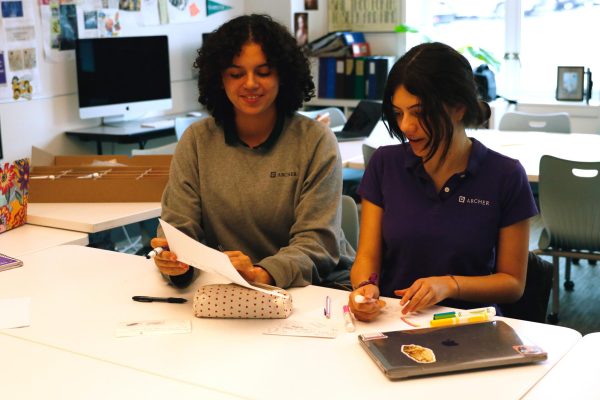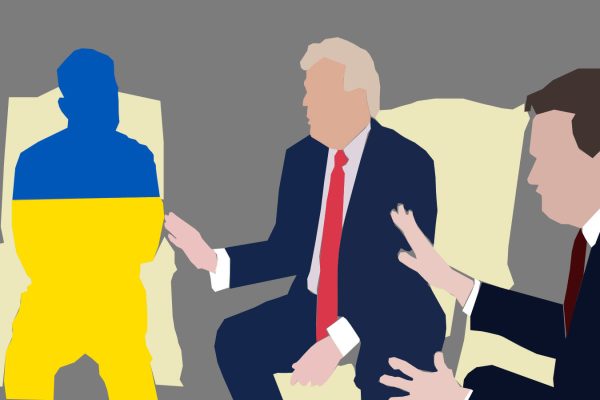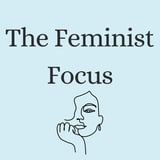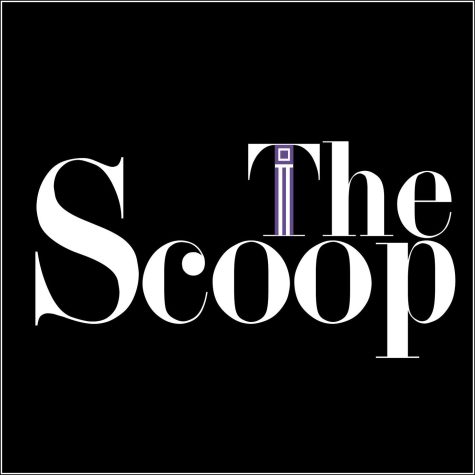ONE archive exhibit ‘educates’ Archer community on LGBTQ+ civil rights
Photo credit: Marya Alford
Archer hosted ONE archives exhibit this month. The exhibit showcased panels with information about LGBTQ+ civil rights throughout history.
In honor of National Coming Out Day in October, Archer hosted the ONE Archives LGBTQ+ Civil Rights history panels. According to its website, the ONE Archives Foundation is dedicated to telling the accurate and authentic stories, history and culture of the LGBTQ community through public exhibitions, educational projects and community outreach programs.
ONE Archives is the oldest LGBTQ+ organization in the United States. It started [in 1952] and currently has the largest collection of historical LGBTQ archives in the world. It has international historical artifacts about LGBTQ rights, identity and change over time.
History teacher and Diversity, Equity and Inclusion (DEI) team member Elana Goldbaum started working with the organization last year.
“I…develop and advise on their education resources, both for teachers and for students,” Goldbaum said.
At the end of last year, Goldbaum informed rising upper schoolers about a program that ONE Archives started called Youth Ambassadors to LGBTQ history. Freshman Evan Bowman applied for the position and is now a Youth Ambassador to the organization.
“[ONE Archives does] a lot of really great work for the community, so I really just wanted to be a part of that and help the organization and learn everything I can from them because they have such a wide expanse of information,” Bowman said.
Students come from all around California and volunteer twice a month to access all of the ONE Archive resources. These resources educate people on LGBTQ+ history worldwide. The pilot program allows students to conduct extra research and take field trips around different communities across L.A.
“[Students] particularly [go to] queer communities of color and [learn] their history,” Goldbaum said. “As we know, in American history those communities often are marginalized, more so than other communities who are also marginalized, even in the LGBTQ community. It is often in some areas of history [that] the leaders who are white who have gotten more attention.”
The program allows students to become “active” community members who lend voices to marginalized groups, Goldbaum said.
“We are actually going to LA City Hall and we are going to meet with politicians and elected officials who openly [identify as] LGBTQ,” Bowman said. “We do a lot of research and compile research and exhibits like the one we had here. We are making one now on Hispanic LGBTQ+ history.”
The focus on the LGBTQ+ communities is what makes ONE Archive “stand out,” Bowman said.
“There’s so much that we don’t learn about in our everyday lives and in school,” Bowman said. “It’s important that we have this kind of information open to us as students.”
The panels were accessible to any student who visited the gallery and were also integrated into classes as coursework.
“It’s been one of those experiences for me as an educator that’s a beautiful reminder of why I teach. [ONE Archives] let us borrow [the panels] for free and we have them on loan. Teachers have been taking their students to the exhibit,” Goldbaum said. “There were supplementary materials that we had access to, which allowed students to process the information and reflect on it.”
Senior Sammy Raucher visited the “inspiring” exhibit with her ethics class, where she and her classmates focused on figures in the exhibit who fought for social justice.
“We talk about it a little in school, but I think to have an exhibit that was dedicated to it was empowering and interesting,” she said.
Goldbaum shared her perspective on the importance of educating the younger generations through exposure to “windows and mirrors.” A “window” offers one a view into someone else’s experience and a “mirror” is a story that reflects one’s own culture and identity.
“[The ONE Archives exhibit] is one opportunity for students of many different age groups to be exposed to windows and mirrors,” Goldbaum said. “Being aware of the LGBTQ community is different than understanding LGBTQ history.”
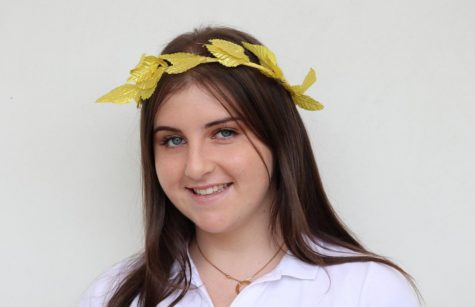
Nicki Rosenberg joined the Oracle in 2017 and was then promoted to Managing Editor as a junior. This year she will continue serving as the Managing Editor...
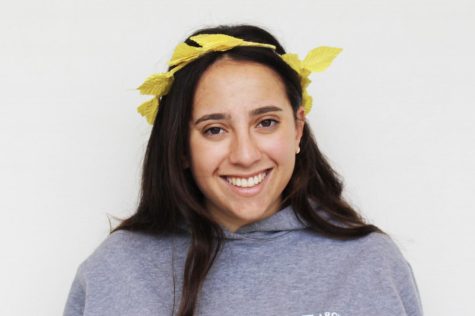
Allie Worchell joined The Oracle writing staff in 2017. This year she is excited to be a member of the editorial board as the Voices Editor. In school,...



